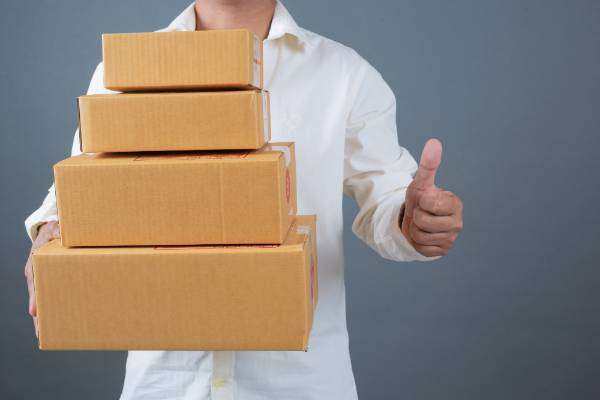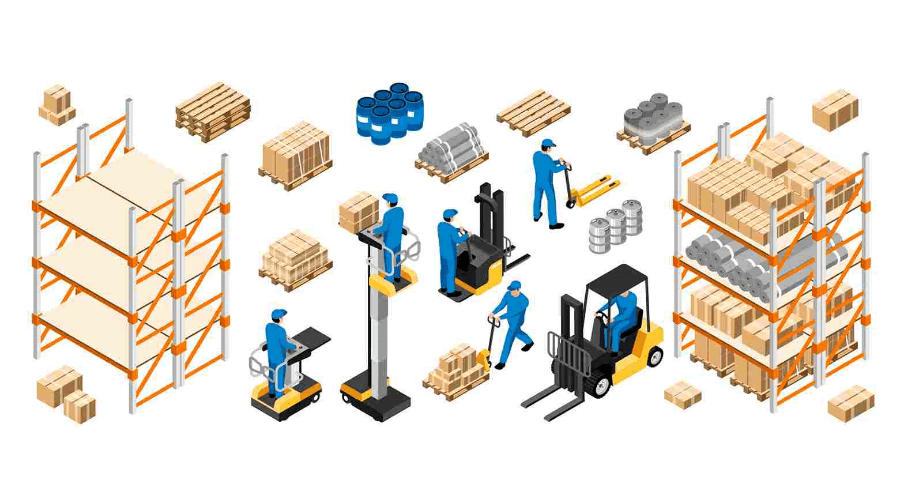
What is Wholesale? How to Find and Buy from Wholesalers in 2024
Wholesale refers to the commercial activity of purchasing and selling goods in larger quantities. In wholesale, goods are bought in larger quantities, usually without final packaging, and resold to trading companies, industrial companies, or other wholesalers. Thus, wholesale is an important part of trade and organizes the flow of goods between producers and retailers.
Who is wholesalers?
Wholesalers typically include companies that sell goods in bulk to trading companies, industrial companies, or other wholesalers. These include, for example, wholesalers for products from the areas of industrial goods, food, building materials, or electronics. Wholesale trade also includes import and export companies that buy and sell goods in large quantities.
Who is allowed to buy at wholesale?
All companies and organizations can buy from the wholesaler. These include retailers, traders, restaurants, hospitals, nursing homes, and many more. The wholesaler is open to all companies and organizations needing larger goods.
However, there are also certain restrictions on purchasing from wholesalers. For example, the wholesaler may restrict the sale of certain goods to private individuals. In this case, only retailers or other companies can buy from wholesalers.

What types of wholesale are there?
There are different types of wholesale, which can be distinguished based on the type of goods sold. The main types of wholesale include:
The industrial wholesaler engaged in the sale of industrial goods. These include, for example, machines, tools, or raw materials.
The wholesale trade is engaged in the sale of consumer goods, such as food, textiles, and electronic products.
Foreign trade deals with the import and export of goods, such as raw materials, industrial goods, and consumer goods.
The service wholesaler is engaged in selling services, such as transport, logistics, or information and communication technology services.
The methods of wholesale
Markets and small customers are supplied directly by wholesalers. The B2B/B2C methods are distinguished here. B2B stands for Business to Business, meaning products are sold from one company to another. B2C, on the other hand, stands for Business to Consumer. This is the delivery of goods from a company directly to the end consumer. As a B2B dealer, the wholesaler hands the goods to the retailer, who finally sells them to the end customer in the B2C trade. Many wholesalers use sales representatives to introduce their products to commercial establishments.
Structure sales continue to exist. With the help of business management software, businesses can easily control each task. This is also referred to as multilevel sales, and at the end of the organizational chain, it often uses private individuals as sellers or distributors. The private sellers are managed via regional central offices and are looked after nationwide by the company.
The storage of goods in large quantities creates residual items in the wholesale trade. These are remaining stocks of goods that have expired, been returned, or are no longer to be continued in the range. These goods are given to residual stock dealers and exported by them or sold domestically via online shops.
Where does the wholesale trade buy from?
A wholesaler usually buys directly from the manufacturers. The wholesale trade thus obtains the goods directly from the manufacturers without an intermediary. By purchasing directly from the manufacturers, wholesalers can negotiate better prices and thus achieve cost advantages over end consumers. In some cases, wholesalers can also buy from other wholesalers. This is the case, for example, if the wholesaler wants to expand his range and purchases goods from other wholesalers. The retailer can also buy from other wholesalers if they want to replenish their stocks or if there are manufacturer shortages. Overall, a wholesaler usually buys directly from the manufacturers,
What is the difference between wholesale and foreign trade?
Wholesale and foreign trade are two distinct fields of activity, both engaged in trade. Wholesale trade refers to the commercial activity of buying and selling goods in larger quantities.
Wholesalers buy goods in larger quantities, usually without final packaging, and sell them to trading companies, industrial companies, or other wholesalers. On the other hand, foreign trade refers to importing and exporting goods. So foreign trade is the commercial activity that deals with goods traded between countries. Foreign trade buys goods in one country and resells them in another country.

What is the function of wholesale?
Wholesale is important in commerce as it helps move goods from manufacturers to end users. The wholesale trade thus serves as an intermediary between the manufacturers and the end consumers and ensures that the goods find the right way to the end consumers. Another important function is warehousing. Wholesalers usually have large storage rooms where the goods are stored until sold. By storing goods, wholesalers ensure enough goods are in stock to cover the end consumer’s needs.
Other important facts about wholesale Statista said a sales forecast of EUR 1.18 trillion was given for wholesale trade in 2020. Compared to the previous years since 2010, sales have continued to rise steadily. According to Statista, sales in 2010 were still 959 billion euros. Almost two million people are currently employed in wholesale. Many tens of thousands are trained to become wholesalers every year. It is also important for the economy to generate competition, find sales and procurement markets, and take on and reduce risks. This, in turn, leads to cost savings for customer transactions.
How are wholesale companies developing?
E-commerce and the virtual goods business are increasing. If wholesalers want to develop all markets fully, an internet presence is of great importance. However, using the Internet for procurement and sales is also essential to keep up in the future. In the future, wholesale may develop into purely online trading.
Conclusion
In particular, medium-sized companies need help switching to B2B e-commerce. However, around 50% of B2B purchases are now online. Switching to e-commerce is, therefore, always worthwhile. Funding programs are now being developed to make digital transformation easier for wholesalers. These consist, among other things, of training employees in online marketing and trading and seminars on creating your online presence. How many companies will seize this opportunity and how quickly digital conversion can work without losing traditional customers remains to be seen.




